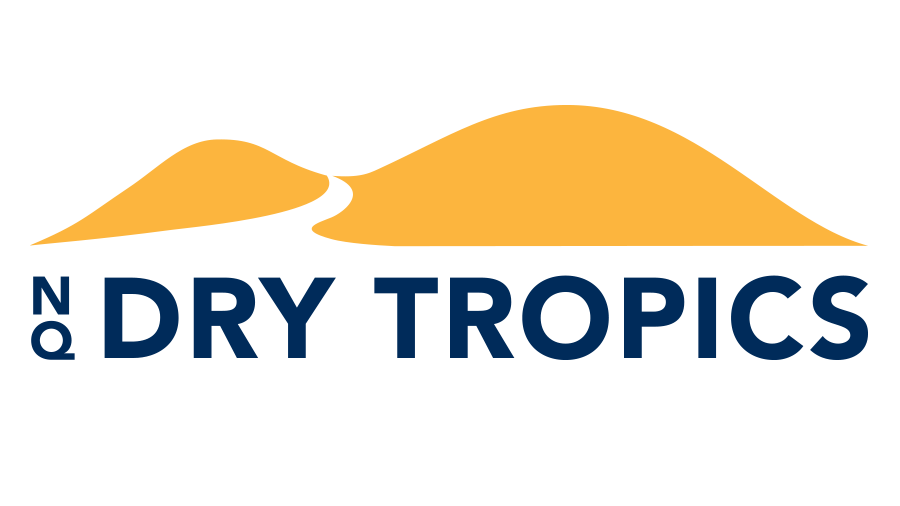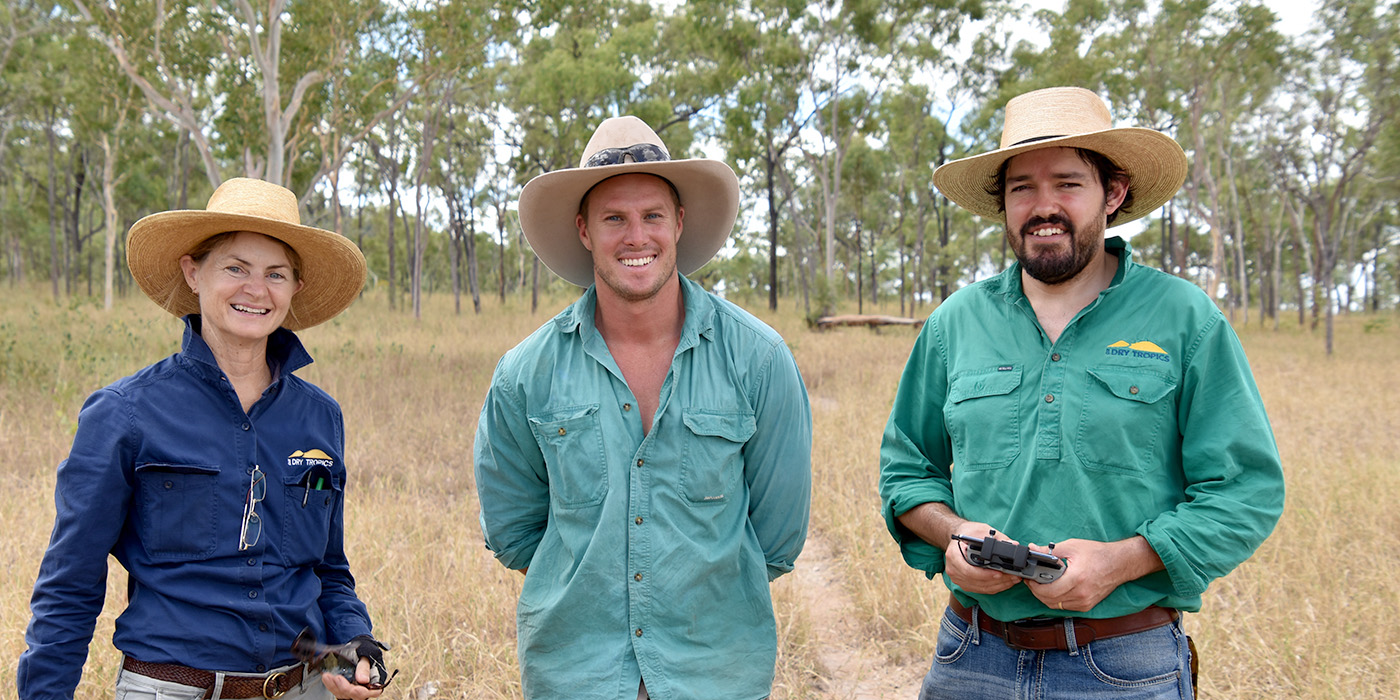Farmers take action to improve their bottom line and the environment
North Queensland farmers are continuing to improve land condition, boost productivity and reduce environmental impacts, according to new figures published in NQ Dry Tropics’ Year In Review 2021-22.
During the 2021-22 financial year, 44 graziers participating in projects delivered by the Natural Resource Management group improved land management practices across more than 150,000 hectares.
Gully remediation and landscape rehydration work, combined with grazing management improvements such as spelling and stocking according to available pasture, resulted in more ground cover and less soil erosion — preventing 63,819 tonnes of fine sediment runoff impacting water quality for corals and seagrasses on the Great Barrier Reef.
New infrastructure to support better grazing management and land condition included 284 kilometres of fencing, 90 off-stream watering points, and 254 erosion control structures designed to rehydrate scalded paddocks by slowing down rainfall.
During the same period, cane growers participating in NQ Dry Tropics projects significantly reduced fertiliser use across nearly 6,500 hectares of cane without affecting yield — saving input costs while preventing 22,200 kilograms of Dissolved Inorganic Nitrogen (DIN) running off-farm.
NQ Dry Tropics Sustainable Agriculture Program Manager Rob Hunt said the results were a win-win for farmers and water quality.
“These achievements demonstrate that well planned and executed practice changes deliver economic and environmental benefits”, Mr Hunt said.
“NQ Dry Tropics is proud to work with primary producers demonstrating a clear commitment to innovation and best practices.”
Two landholders committed to more sustainable practices are Brenton Malpass and his father Peter, who are participating in NQ Dry Tropics’ Herding Change Through Grassroots Recovery project, funded through the partnership between the Australian Government’s Reef Trust and the Great Barrier Reef Foundation.
They purchased the former cattle research station Swan’s Lagoon in 2014, aiming to improve land condition and productivity.
Some sections of the 34,000 hectare property near Ayr had historically been overgrazed, causing widespread gully erosion delivering sediment to the Burdekin River, and the Great Barrier Reef.
NQ Dry Tropics Senior Grazing Officer Joe’ O’Reagain and Soil Conservation Officer Bernie Claussen supported them to develop and execute a plan that combined grazing management improvements with gully remediation.
Mr O’Reagain said an initial property assessment indicated native grasses were in decline, with less desirable species and weeds taking over.
“You can use grasses to read your country,” Mr O’Reagain said.
“Often when there’s been long-term overgrazing and set stocking, cattle will preferentially graze more desirable grasses such as black speargrass and angleton grass, which will start to disappear and be replaced by wire and low grasses, and species such as Indian couch.
“Lack of water infrastructure was a contributing factor. For example, one nine kilometer long paddock only had water at one end, so nearby pasture was severely overgrazed.
“There was, however, all this great feed at the other end of the paddock that wasn’t being utilised, so we wanted to split those paddocks and put water into the areas where there hadn’t been any in the past.
“This would enable the paddocks to be spelled on a rotational basis to give those native grasses a chance to seed, and hopefully start to out-muscle those less desirable species over time.
“The goal was to increase ground cover, maximise the feedbase, improve water infiltration, and reduce sediment runoff during storms.”
New fencing and water points reduced grazing pressure by creating smaller paddocks that could be regularly spelled to give native grasses a chance to seed and out-compete less desirable species.
Brenton said the advice and on-ground interventions were invaluable.
“Joe and Bernie have done a really good job, I feel like they’ve gone above and beyond, and they’re always available for help with anything,” he said.
“They understand the challenges we deal with, and the need to be flexible, because plans can change every day.”
Other NQ Dry Tropics project achievements highlighted in the Year In Review 2021-22 included weed control across 6,500 hectares, removing 753 feral pigs and 158 chital deer, planting 30,000 native plants, and collecting 1.42 tonnes of rubbish, including marine debris and plastics.

